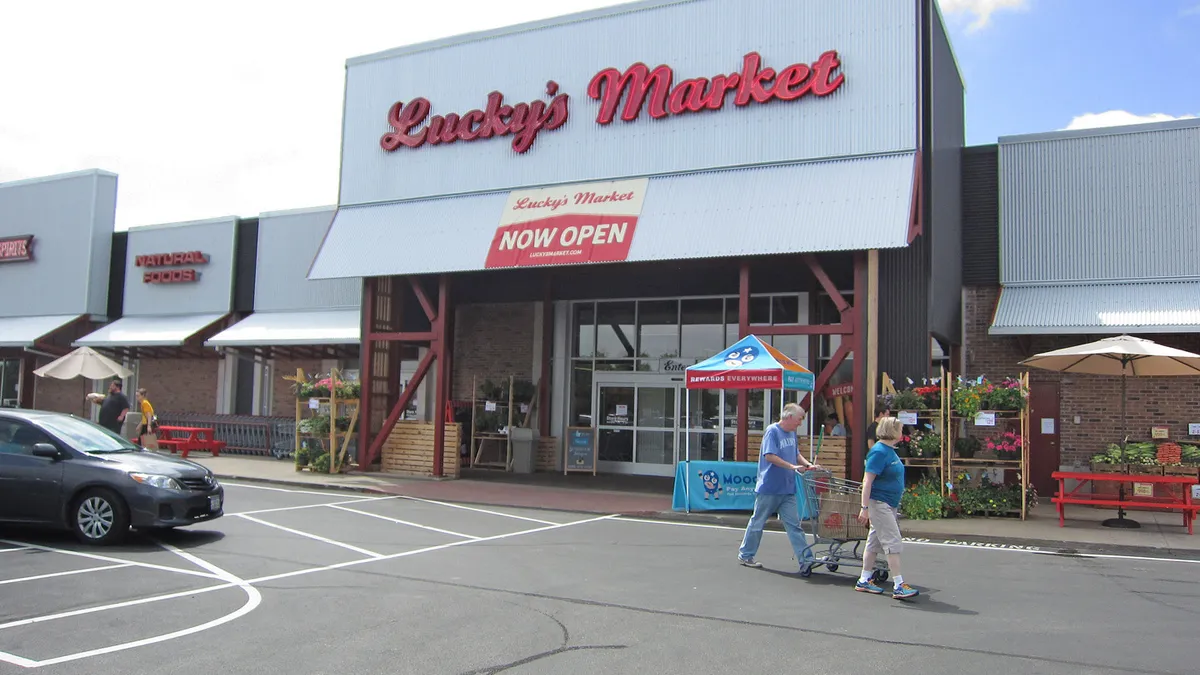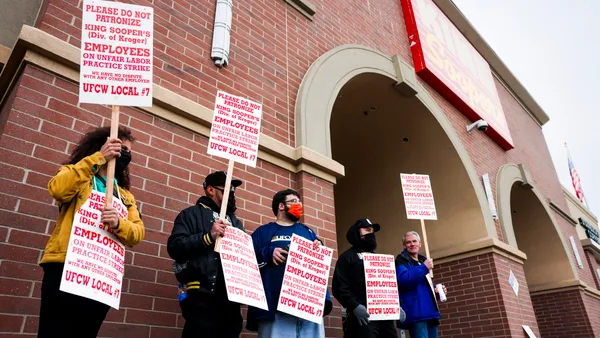Dive Brief:
- Kroger has purchased a 74,000-square-foot shopping center in Delray Beach, Florida, which will house a Lucky’s organic grocery store, according to the Palm Beach Post. Lucky’s will occupy 29,000 square feet of the shopping center’s space and will open in 2019.
- In 2016, Cincinnati-based Kroger announced its strategic partnership with Lucky’s, which is based in Colorado. Since then, Lucky’s has been expanding in Florida. It also has plans to open three more locations in the Boca Raton market within the next two years.
- Although Kroger has a footprint in 35 states, the Palm Beach Post says the company hasn’t operated in Florida since 1988.
Dive Insight:
Competition in the grocery space is cutthroat, and that is perhaps no more evident than in Florida. In the Sunshine State, grocery square footage jumped 6% last year, up from a 5% growth clip in 2016, according to real estate research firm JLL. Meanwhile, the rest of the country experienced a dip of nearly 29% in store openings last year.
In this hotly contested market, Publix is – by far – the dominant player with 787 stores. By comparison, there are 230 Walmart stores in Florida.
As grocery analyst David Livingston told the Palm Beach Post, it would be a “bad move” for Kroger to plant a flag in Florida: “Publix is too strong.” Kroger is wise to instead commit its resources in its flagship markets to better compete with Amazon and Walmart on everything from delivery to targeted marketing.
Rather than go head-to-head with Publix on its home turf, Kroger is helping bankroll Lucky’s, a promising upstart that attracts an increasing number of consumers looking for natural, organic and private label groceries. JLL reported that organic food sales grew 9.8% in 2017 — and smaller specialty stores such as Lucky’s are growing in Florida to specifically target that market. Having more of a personalized, niche focus could pull some loyalty-seeking consumers away from the Publix across the street.
Kroger’s investment in the entire shopping center is also a strategic move pulled directly from the Publix playbook. By doing this, the company can generate rental income from tenants, providing cash to reinvest. Kroger can also benefit significantly from the control it has over its tenants and its competition. The grocer probably wouldn’t want a competitive restaurant or a drug store opening in a shopping center it anchors, for example, and can therefore control a significant amount of business in that immediate market.
The Kroger/Lucky’s approach so far seems like a win-win. With Kroger’s help, Lucky’s is aiming to nearly double its footprint with plans to open 20 new stores in the next 18 to 24 months. On the other hand, Kroger is afforded the opportunity to – at least tangentially – compete with Florida’s dominant players and perhaps glean some knowledge about the market without taking a bigger risk by jumping in itself.
In the end, however, it’s the consumers who will win. All of this competition not only provides them with an increasing amount of choices, it is more likely to keep prices in check.












